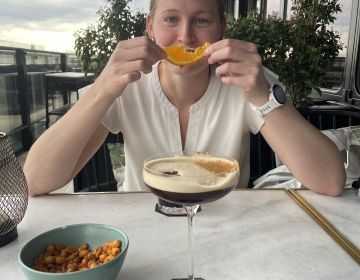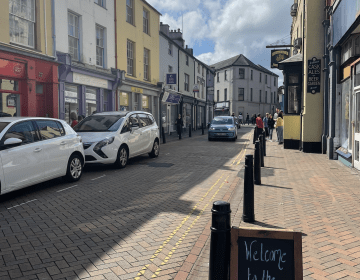8 Helpful Spanish Words and Phrases to Use in Everyday Interactions
¡Hola! I’m in Spain!
I’ve been in Spain for exactly three weeks now and everything has been going pretty well so far! I met tons of amazing new people at CIEE orientation during the first week. After that, I moved in with my wonderful host parents and their five children, started taking classes at Tandem, and have already learned so much. Outside of class, I’ve been apartment hunting, trying all sorts of new foods and drinks, and going on excursions to new places.
Life in Spain isn't all sangria and tapas, however. There are a lot of really hard aspects to moving to another country and away from family, friends, and familiarity, especially when the country you move to speaks a different language. It can definitely leave you feeling a bit helpless and incapable of carrying out basic daily interactions, like ordering food. That’s why I’m here to help! Here are eight useful phrases and bits of advice to help you along in the early weeks, until you feel more confident speaking Spanish.
Please, thank you, and sorry. This is just a piece of advice: it's not necessary to say please, thank you, and sorry like we have a tendency to do in just about every interaction in the United States. Don’t get me wrong, you should still say please and thank you, but you do not need to punctuate everything you say with one of the two.
Vale. Vale is a very frequently used word and is good to use during conversation to affirm that you are listening and understand what is happening. It’s similar to okay, gotcha, and sounds good in English. It’s also used as a question to check that the other person understands and/or to make sure whatever it is you are saying sounds good to them.
¿Qué tal? Todo bien. The Spanish equivalent of "how are you? I’m good." A great way to greet someone is with ¡Hola! Qué tal? And to answer: (todo) bien. ¿Y tú?
Me das/me pones/me gustaría. These are three very useful phrases to set up your food or drink order. Please do not say "puedo tener" followed by the food or drink that you want; that is a direct translation of English and makes no sense in Spanish. Another ordering tip- if you do not want to pay for water and are fine with drinking tap water, ask for agua de grifo.
Igualmente. Igualmente equals "you too." Use it in any situation in which you would use "you too" in English, like if someone wishes you a good night.
¿Cómo? If you did not hear or understand what someone said to you and you need them to say it again, use ¿cómo? or ¿cómo dices? to ask them to repeat themselves.
Perdón/permiso. Both work for when you need someone to move out of your way, but you want to be polite about it.
Hasta luego. Hasta luego is the most common way to say goodbye in Spain. Adios and ciao are also used, but not as frequently.
I hope these help you to navigate daily interactions during your early days in Spain, until you have spent more time in the language and are feeling a bit more comfortable speaking Spanish. And please don’t beat yourself up over misunderstandings or occasions where you have to speak in English; it’s going to take time to feel confident in your Spanish!
Related Posts
Melisandra in Madrid
Hello reader! My name is Melisandra. I'm from Philadelphia, Pennsylvania. My great-grandfather was born in Bilbao, and I am 3rd generation Latina/ Hispanic. My Abuelitos are a big inspiration and... keep reading
5 of the Coolest Cocktail Bars in Madrid
Walk into any bar or restaurant in Madrid and you’ll have all the typical drinks available to you- beer, wine, basic cocktails, etc. However, Madrid is also home to many... keep reading
Greetings loved ones- Let's take a Journey!
A wise one once said, "Greetings loved ones- Let's take a Journey!" Hello, hello! My name is Emma and I am so excited to take you along with me as... keep reading






